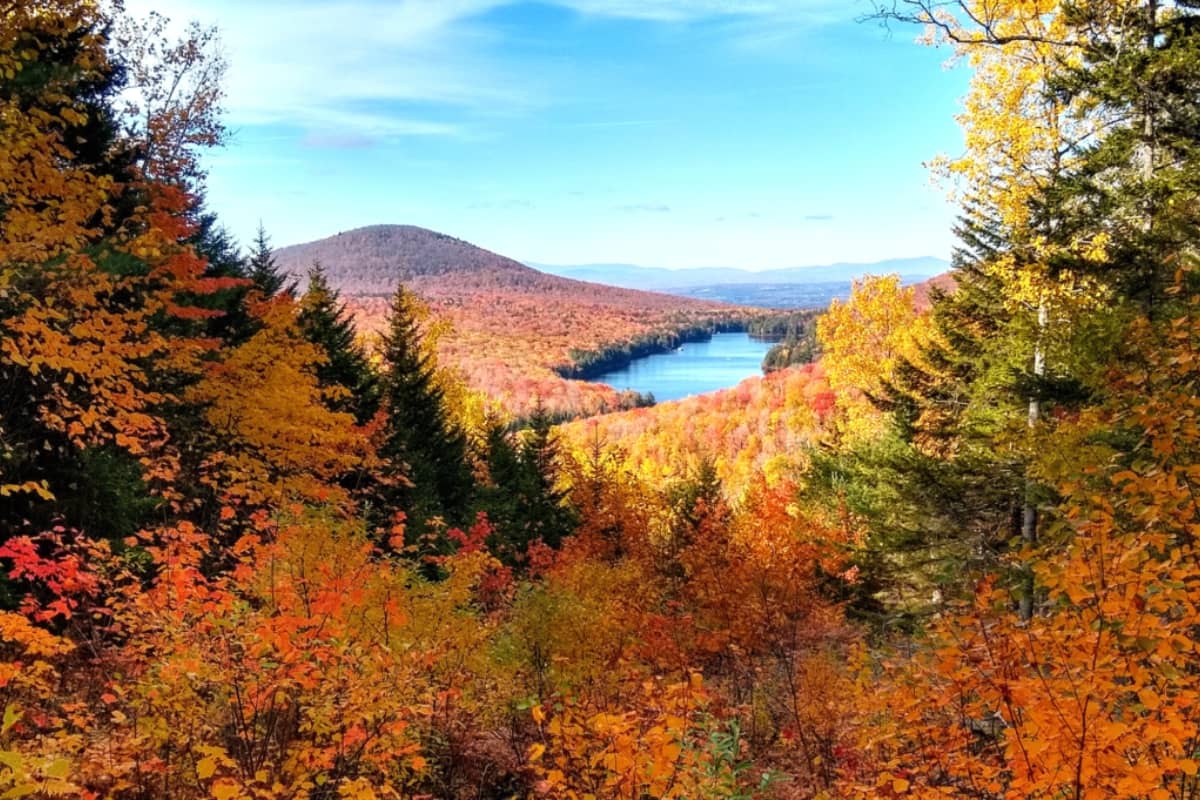The Green Mountains of Vermont are a magnet for tourists, especially during the vibrant fall foliage season. The beauty of the changing leaves, coupled with charming small towns, attracts thousands of visitors each year. Unfortunately, this influx of tourists also draws the attention of scammers who prey on unsuspecting travelers. Whether through fake rental listings, fraudulent parking schemes, or impersonating officials, these scams can easily turn an otherwise beautiful trip into a nightmare. Below are four common scams that target fall tourists in Vermont’s Green Mountains, along with tips on how to avoid them.
1. Fake Vacation Rental Listings
One of the most prevalent scams targeting tourists during Vermont’s peak foliage season is the fake vacation rental listing. Scammers advertise stunning properties on popular platforms like Craigslist, Facebook Marketplace, or even on lesser-known travel sites. These listings often offer great deals, making them attractive to tourists eager to secure accommodations in this highly sought-after region.
Scammers entice travelers with photos of beautiful cabins or mountain homes. Once tourists show interest, the scammer demands an upfront payment to “secure” the property. After payment, the tourists may receive fake confirmation details or be ghosted entirely. Upon arrival, they find that the property either doesn’t exist or was never available for rent in the first place.
How to avoid it: Always book through reputable websites like Airbnb or Vrbo, which offer protection against fraud. Avoid sending money through wire transfers or prepaid cards. If a deal seems too good to be true, it probably is. Look for verified reviews, cross-reference listings, and communicate through the platform’s messaging system rather than outside channels.
2. Utility Scam: The Green Mountain Power Grift
This scam involves con artists impersonating utility companies, particularly Green Mountain Power (GMP), which serves the region. The scammers contact both tourists and local businesses, claiming that immediate action is required to prevent their power from being shut off. These calls often seem legitimate, with the caller claiming the need for payment to replace faulty meters or maintain services.
Tourists staying in rental properties may receive calls or messages claiming that their electricity will be cut off unless they pay immediately. The scammers request payment through untraceable methods like gift cards, which is a red flag. They may also pressure the victim, creating urgency to prevent the tourist from questioning the legitimacy of the call.
How to avoid it: Utility companies will never demand payment through gift cards or ask for personal financial information over the phone. Always hang up on these calls and contact Green Mountain Power directly using verified contact information. Inform the property owner if you’re staying at a rental, and never provide payment without verifying with the utility company first.
3. Fake Parking Fee Schemes
Parking scams are becoming increasingly common around tourist-heavy areas in the Green Mountains, especially during the peak fall foliage season. In this scam, tourists are approached by individuals posing as parking attendants, asking for parking fees in areas that are actually free or at a lower rate than what the scammer demands.
Scammers may post fake signs or wear uniforms to make their operation seem legitimate. They often target areas near popular hiking trails, scenic overlooks, or small towns that are not closely monitored. The scammer charges exorbitant fees or insists on cash-only payments. After collecting the money, the scammer disappears, leaving the tourist with a hefty parking ticket or worse—towed car—if they parked illegally based on the scammer’s guidance.
How to avoid it: Research parking rules in advance for popular attractions. Most areas around the Green Mountains have well-established parking lots with clearly marked fees. Don’t pay anyone who approaches you unless you see official signage. When in doubt, ask a local business or look for government-issued parking meters.
4. Charity and Souvenir Fraud
While Vermont’s small towns and scenic highways are full of local artisans and genuine charitable causes, there are scammers who use the guise of charity to solicit donations from well-meaning tourists. Posing as volunteers or representatives from local charities, they ask for donations, often presenting an emotional appeal or a supposed connection to a local cause. These scammers also sell counterfeit or low-quality “local” souvenirs at inflated prices.
These fraudsters may set up booths at farmers’ markets, rest stops, or near popular hiking trails, selling items they claim are handmade or connected to a charitable cause. Tourists, eager to bring home a unique souvenir or to give back to the community, fall for these tactics, paying high prices for cheaply made goods or donating to a fake charity.
How to avoid it: Always research a charity before donating, and be skeptical of anyone asking for immediate donations in cash. If you’re buying souvenirs, opt for well-established shops with verifiable business reputations. Avoid any sellers who cannot provide clear information about their products or cause.
General Tips for Tourists
- Use Reliable Sources: Whether you are booking accommodation or planning activities, always use reputable platforms and websites. Avoid Craigslist or unfamiliar booking sites unless they offer strong buyer protection guarantees.
- Verify Everything: If someone approaches you asking for money—whether for parking, utilities, or donations—take the time to verify their claims. Utility companies, for example, will never ask for payment through prepaid cards, and real charities should provide detailed information about their cause.
- Trust Your Instincts: If something feels off, trust your gut. Scammers rely on pressure tactics to make you act without thinking. Step back, do your research, and ensure that what you’re being asked for is legitimate.
Final Thoughts
Scammers target fall tourists in Vermont’s Green Mountains because they know visitors are eager to enjoy the season and may be less familiar with local norms. By being aware of these common scams—fake vacation rentals, fraudulent utility calls, fake parking fees, and charity fraud—tourists can better protect themselves and their hard-earned money. Always take the time to verify claims, avoid upfront payments to unknown entities, and use reputable sources for all your travel needs. With a bit of vigilance, you can enjoy the natural beauty of Vermont’s fall season without falling victim to these scams.






